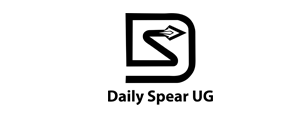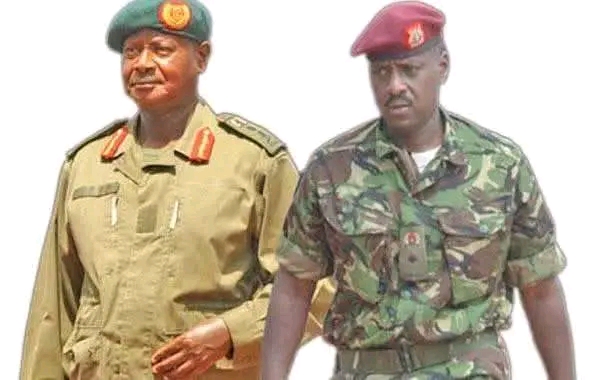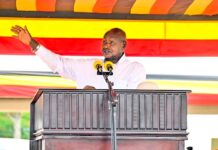General Muhoozi Kainerugaba, Uganda’s Chief of Defence Forces (CDF), has issued a stark warning to the armed forces in Bunia, the capital of the Democratic Republic of Congo’s Ituri Province, demanding their immediate surrender.
In a statement shared via social media, Gen Muhoozi, citing the authority of his father, President Yoweri Museveni, declared that Uganda is ready to take military action if his orders are not heeded.
“With the authority of General Yoweri Museveni, Supreme Commander of the UPDF, I give a 24-hour ultimatum for all forces in Bunia to lay down their arms. Failure to comply will result in Uganda considering them as enemies and engaging them,” Muhoozi warned.

This latest declaration follows Uganda’s ongoing military operations in Ituri under a joint agreement with the DRC, focused on combating the Allied Democratic Forces (ADF), a rebel group labeled as a terrorist organization by both Uganda and the DRC.
However, Muhoozi’s ultimatum hints at a broader military agenda, one that could target not only rebel factions like the ADF but also other armed groups present in the region.
The Chief of Defence Forces in Uganda, as per the UPDF Establishment, holds the authority to mobilize the military with the prior briefing of the Commander-in-Chief.
This move has sparked concern and speculation regarding Uganda’s growing military influence in Ituri, a province rich in valuable minerals.

Gen Muhoozi has previously voiced his support for the M23 rebel group, whose actions in the DRC have drawn widespread criticism. His connection to the group, alongside his controversial statements regarding Rwandan President Paul Kagame whom he refers to as his “uncle”has further complicated Uganda’s diplomatic stance. Muhoozi has vowed to fight anyone who opposes him, including those tied to the M23.
Adding to the tension, a senior Ugandan military officer was recently arrested on Muhoozi’s orders for allegedly accepting a large sum of money to gather intelligence on behalf of a Southern African country.
The incident has fueled further speculation about Uganda’s involvement in regional power struggles.

Over the weekend, the M23 made significant territorial gains in the South Kivu Province of the DRC, capturing major towns, including Bukavu, and seizing Kavumu Airport. The rapid advance of M23 forces has escalated the conflict, raising alarms about foreign backing and deepening the instability in the region.
Gen Muhoozi’s ultimatum is the latest in a series of bold statements, reinforcing his position within Uganda’s military and political hierarchy. His reference to President Museveni’s authority emphasizes Uganda’s readiness to use force if its demands are not met.
The Congolese government has not yet issued an official response to Muhoozi’s threat, but President Félix Tshisekedi has previously voiced his frustration over foreign interference in his country’s affairs.
Last Friday, Tshisekedi drew attention by skipping the African Union (AU) Peace and Security Council summit in Addis Ababa, where the crisis in the DRC was being discussed. Instead, he traveled to Germany to attend the Munich Security Conference, where he blamed his predecessor, Joseph Kabila, for the current political unrest in the country.

Tshisekedi also met with International Criminal Court (ICC) prosecutor Karim Khan during his trip, signaling his efforts to internationalize the DRC’s crisis and seek external support.
Meanwhile, the DRC’s military, the FARDC, has struggled to maintain control over rebel-held territories, with reports indicating that Burundian forces retreated from South Kivu last Friday. The M23’s rapid advances, combined with Muhoozi’s controversial ties to Kagame and his military threats, have raised significant concerns about Uganda’s role in the ongoing conflict.
With tensions escalating in the region, Uganda’s intentions in the DRC remain a subject of intense speculation, leaving the international community questioning the true scope of Uganda’s military involvement in the crisis.






